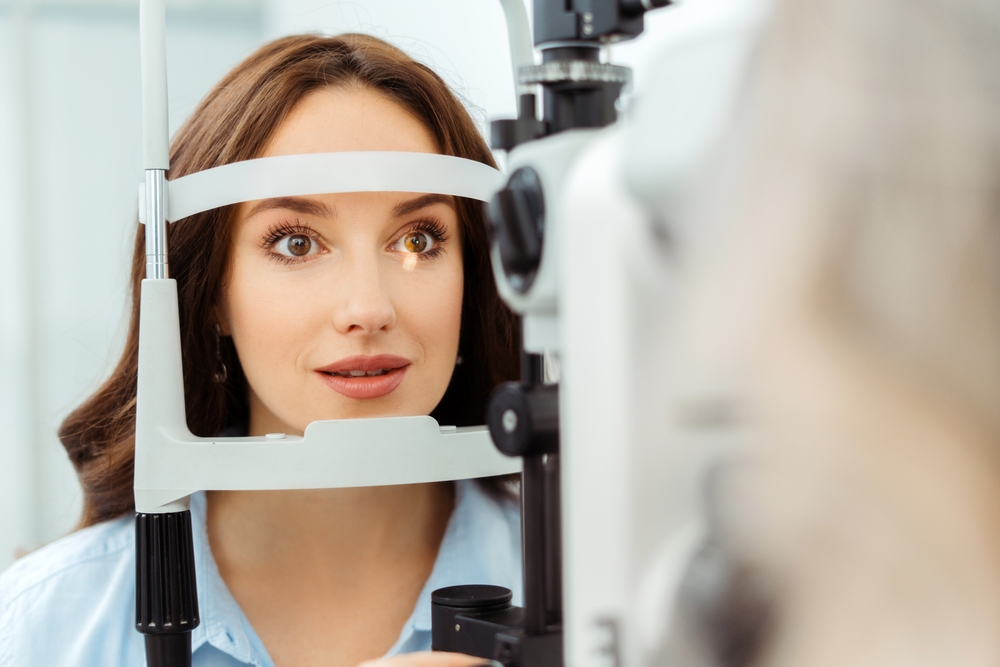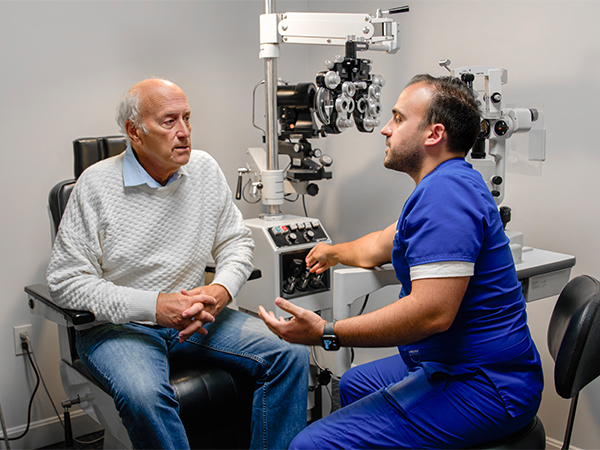
Regular eye exams are an essential part of preventive care, helping to detect vision changes, eye diseases, and even health conditions that may not show obvious symptoms. At WeCare Eye Group, we emphasize the importance of yearly comprehensive eye exams as a proactive step toward protecting both your vision and your general well-being.
What Is a Comprehensive Eye Exam?
A comprehensive eye exam is much more than a simple vision screening. It involves a detailed series of tests and evaluations conducted by an optometrist or ophthalmologist to assess both your eyesight and the overall health of your eyes. These exams are essential for identifying not only refractive errors but also early signs of eye diseases and systemic health issues.
During the exam, your eye doctor will typically perform a variety of assessments. These include visual acuity testing to measure how clearly you see at different distances, and a refraction assessment to determine if you need corrective lenses. Eye muscle movement tests evaluate how well your eyes work together, while a peripheral vision evaluation helps detect any vision loss in your side field of view.
Intraocular pressure measurement is used to screen for glaucoma, a condition that often develops without early symptoms. Finally, the exam includes a close inspection of your retina and optic nerve, usually through dilated pupils, to look for signs of retinal disease, nerve damage, or other underlying health concerns.
This thorough approach allows your optometrist to catch problems early, sometimes even before you notice any symptoms, making regular comprehensive eye exams a vital part of your healthcare routine.
What Can Annual Eye Exams Detect?
Even if your vision feels perfectly normal, yearly eye exams can uncover early signs of conditions that often develop without noticeable symptoms. One of the most common issues detected during these exams is refractive errors, which include nearsightedness (myopia), farsightedness (hyperopia), astigmatism, and presbyopia. These conditions affect how light enters the eye and can lead to blurred vision. Fortunately, they are easily corrected with prescription glasses or contact lenses, and identifying them early can prevent unnecessary eyestrain, headaches, and difficulties with daily tasks.
Comprehensive exams also help detect serious eye conditions and diseases in their earliest stages. Glaucoma, for instance, often progresses silently until vision loss becomes apparent. Macular degeneration, a leading cause of vision loss in older adults, can show early signs long before it impacts central vision. Cataracts develop slowly over time and are treatable when monitored regularly. For individuals with diabetes, an eye exam can reveal diabetic retinopathy, a complication that may otherwise go unnoticed until it causes damage.
In addition to eye-related concerns, routine eye exams can also reveal signs of systemic health issues. Many people are surprised to learn that conditions such as diabetes, high blood pressure, high cholesterol, autoimmune disorders, and even some cancers may first be identified through changes observed in the eyes. The blood vessels, optic nerve, and retina can reflect health problems occurring elsewhere in the body, making routine eye exams a valuable tool for early detection and referral for further medical care.
Who Should Have Regular Eye Exams?
Children: Early detection of vision issues is vital for learning and development. Pediatric eye exams can catch amblyopia (lazy eye), strabismus (crossed eyes), and other problems that may affect school performance.
Adults: Even in the absence of symptoms, adults should have annual eye exams to monitor for gradual changes and catch conditions like glaucoma or retinal disease early.
Seniors: The risk of eye disease increases with age. Seniors are more susceptible to cataracts, macular degeneration, and other vision-impairing conditions that benefit from early intervention.
High-Risk Individuals: Those with diabetes, a family history of eye disease, or certain medications may need more frequent eye exams.
Your Vision, Our Priority
Annual eye exams are a simple yet powerful way to protect your vision and overall health. By detecting issues early, these exams can help prevent vision loss, manage chronic conditions, and uncover signs of more serious health problems. Making regular eye exams part of your healthcare routine is one of the best steps you can take toward long-term wellness.
At WeCare Eye Group, your eye health is our top priority. Schedule your comprehensive eye exam and take a proactive step toward clear, healthy vision. We’re here to serve you at multiple locations across Pennsylvania and Rhode Island. Contact the office nearest you to book your appointment today:
Ardmore Eye Care - Ardmore, PA | (610) 624-2151
WeCare Eyes and Skin MedSpa - Providence, RI | (401) 331-7850
Cranston Eye and Optical - Cranston, RI | (401) 942-9933
Westminster Eye Care Associates - Providence, RI | (401) 331-7850
Smithfield Eye and Optical - Greenville, RI | (401) 949-7300
College Hill Eye and Optical - Providence, RI | (401) 831-2015
North Providence Eye and Optical - North Providence, RI | (401) 353-2010











